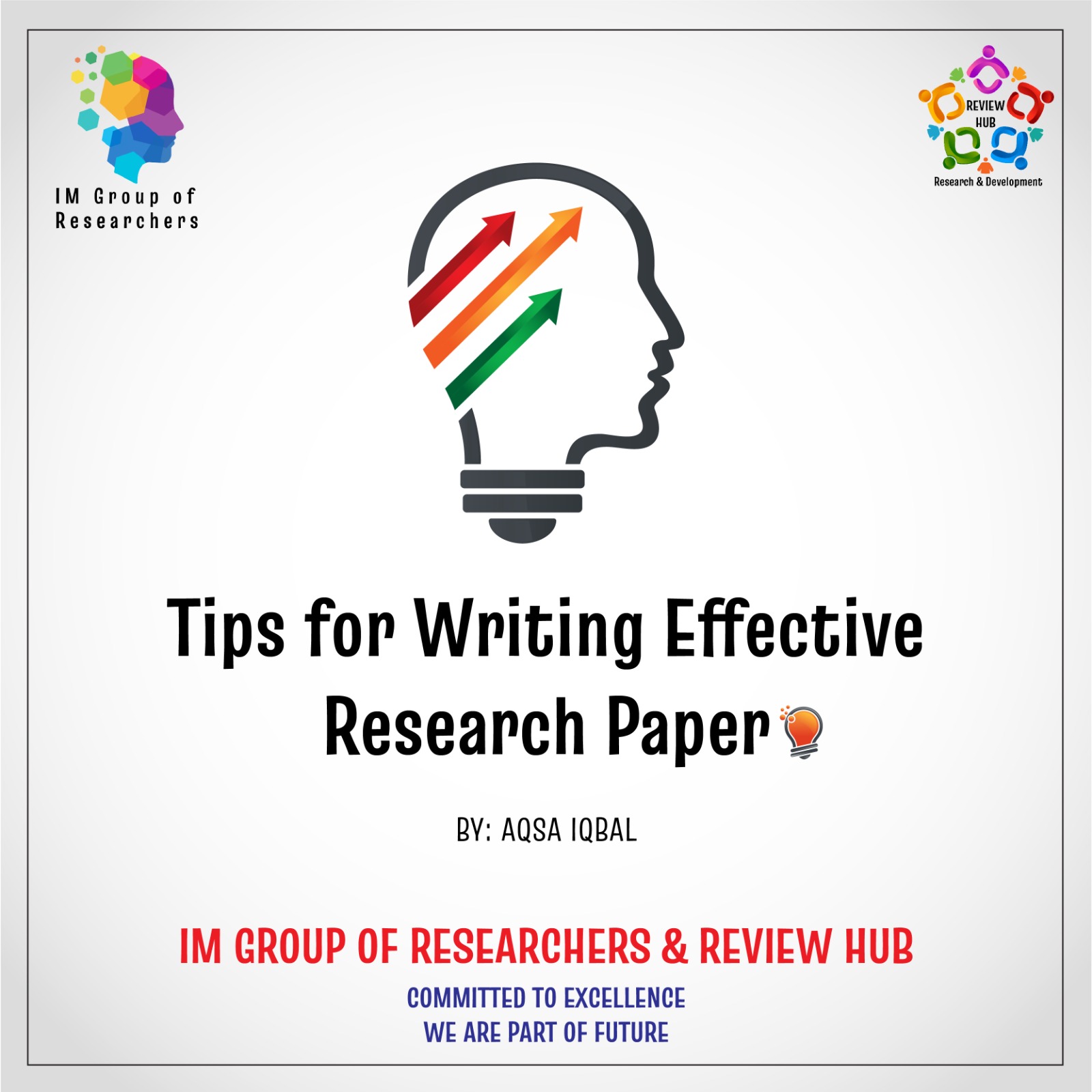13 Tips for Writing Effective Research Paper
Authors:
Aqsa Iqbal

LinkedIn: Click here to see Aqsa‘s profile
Writing a Research Paper is an art itself that not everyone possesses, but worry not we’re here to help you create valuable contents for your paper. These are 13 Tips for Writing Effective Research Paper. Follow these steps and get a good piece of paper that is worth publishing.
1- Clearly Define Your Research Question:
Begin with a well-defined research question or hypothesis to guide your paper.
2- Thorough Literature Review:
Conduct a comprehensive review of existing literature to understand the current state of knowledge on your topic.
3- Organized Structure:
Plan a clear and logical structure for your paper, including sections like introduction, literature review, methodology, results, discussion, and conclusion.
4- Concise Title and Abstract:
Craft a concise yet informative title and abstract that accurately represent the content of your paper.
5- Precise Methodology:
Clearly describe your research methods, enabling others to replicate your study. Be precise about tools, materials, and procedures used.
6- Data Presentation:
Display your results using appropriate tables, figures, or graphs. Ensure they are easy to understand and directly support your findings.
7- Thorough Analysis:
Interpret your results thoroughly and link them back to your research question. Discuss any unexpected findings and their implications.
8- Clear Discussion:
Clearly discuss the significance of your results in the broader context of existing literature. Address limitations and propose avenues for future research.
9- Citations and References:
Follow a consistent citation style (APA, MLA, etc.) and ensure all sources are properly credited. Cross-check references to avoid errors.
10- Attention to Detail:
Pay close attention to grammar, spelling, and formatting. A well-presented paper enhances readability and professionalism.
11- Peer Review:
Before submission, seek feedback from colleagues or mentors. Peer review helps identify potential weaknesses and ensures the paper’s quality.
12- Compliance with Guidelines:
Adhere to the specific guidelines provided by the journal or conference to which you’re submitting. This includes formatting, word count, and any other specific requirements.
13- Revisions and Proofreading:
Allow time for revisions and proofreading. Reading your paper with fresh eyes helps catch errors and refine the clarity of your arguments.
Remember, effective research papers not only contribute new knowledge but also communicate that knowledge effectively to the reader.
Also read: How To access high quality research articles
Follow us on Facebook – Click Below

